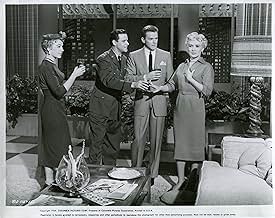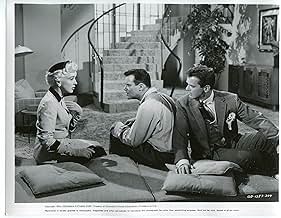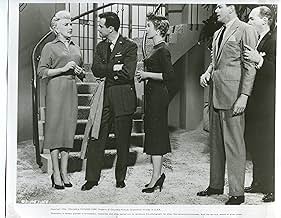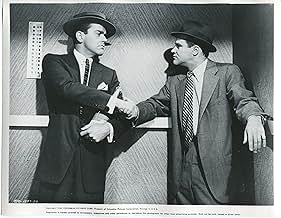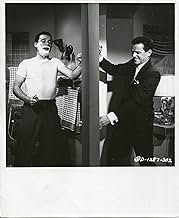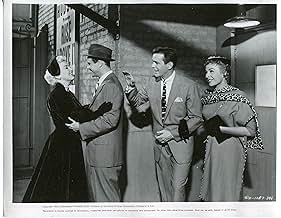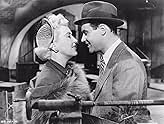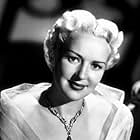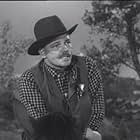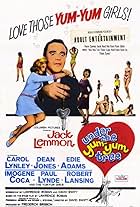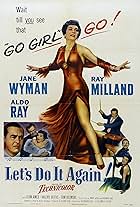A widowed singer marries her late husband's songwriting partner, which leads to trouble when her first husband turns up very much alive.A widowed singer marries her late husband's songwriting partner, which leads to trouble when her first husband turns up very much alive.A widowed singer marries her late husband's songwriting partner, which leads to trouble when her first husband turns up very much alive.
David Ahdar
- Male Harem Dancer
- (uncredited)
Leon Alton
- Stage Manager
- (uncredited)
Tom Anthony
- Bit Role
- (uncredited)
Robert Bice
- Sgt. Charlie O'Hallihan
- (uncredited)
Bill Boes
- Male Harem Dancer
- (uncredited)
Eugene Borden
- Costume Designer
- (uncredited)
Johnny Brazil
- Male Harem Dancer
- (uncredited)
Eddie Brown
- Male Harem Dancer
- (uncredited)
George Bruggeman
- Male Harem Dancer
- (uncredited)
Aileen Carlyle
- Mother
- (uncredited)
Beulah Christian
- Wardrobe Woman
- (uncredited)
Gene Dailey
- Male Harem Dancer
- (uncredited)
John David
- Male Harem Dancer
- (uncredited)
- Director
- Writers
- All cast & crew
- Production, box office & more at IMDbPro
Storyline
Did you know
- TriviaMercury Records issued a 10-inch LP of the soundtrack, which would be the only contemporary soundtrack album released from a Betty Grable film.
- Quotes
Gwen Howard: I wonder what kind of champagne I should order.
Vernon Lowndes: Depends what you're launching.
- ConnectionsFeatured in Hollywood: The Gift of Laughter (1982)
- SoundtracksHow Come you Do Me Like You Do
Words and Music by Gene Austin and Ray Bergere
Performed by Betty Grable (uncredited)
Featured review
Musicals are dying, you're Harry Cohn, you have all those expensive sound stages and wide-screen cameras lying around... what do you do? He remade one of Columbia's not-first-rate-to-begin-with screwball comedies, "Too Many Husbands," outfitted as a very splashy and very insubstantial musical with an oddball cast. Good it's certainly not, but for students of the evolution of the '50s musical, it's interesting. Betty Grable, legs as spectacular as ever, has married Gower Champion when first husband Jack Lemmon, thought dead in the war, returns. It's a standard plot, silly and overstaged, with Lemmon and Gower throwing a lot of fake punches at each other. But the filmmakers do try to retrofit it in musical ways. The score, mostly Gershwin standards, isn't well sung, and Grable and Lemmon are a terrible match -- she just seems too much woman for him, and she was nearly a decade his senior. But he does warble passably and even dances and tickles the ivories a little. Most striking are a couple of extended, wordless sequences, not exactly dancing and not exactly not, but choreographed, to classical chestnuts: They show the makers' desperation at trying to do something, anything, new, to keep musicals alive. Marge Champion, not a singer, surprisingly has to sing a lot. She and Gower have the best sequence, a falling-in-love pas de deux filmed practically in one take, like the good old Fred and Ginger duets. But the movie feels underpopulated -- these four and Myron McCormick, as an unappealingly avaricious agent, are practically the whole cast -- and Gower, though lean and graceful, looks impatient to jump out of the Cinemascope frame and go direct.
- How long is Three for the Show?Powered by Alexa
Details
- Release date
- Country of origin
- Language
- Also known as
- The Pleasure Is All Mine
- Production company
- See more company credits at IMDbPro
- Runtime1 hour 33 minutes
- Aspect ratio
- 2:55 : 1
Contribute to this page
Suggest an edit or add missing content


